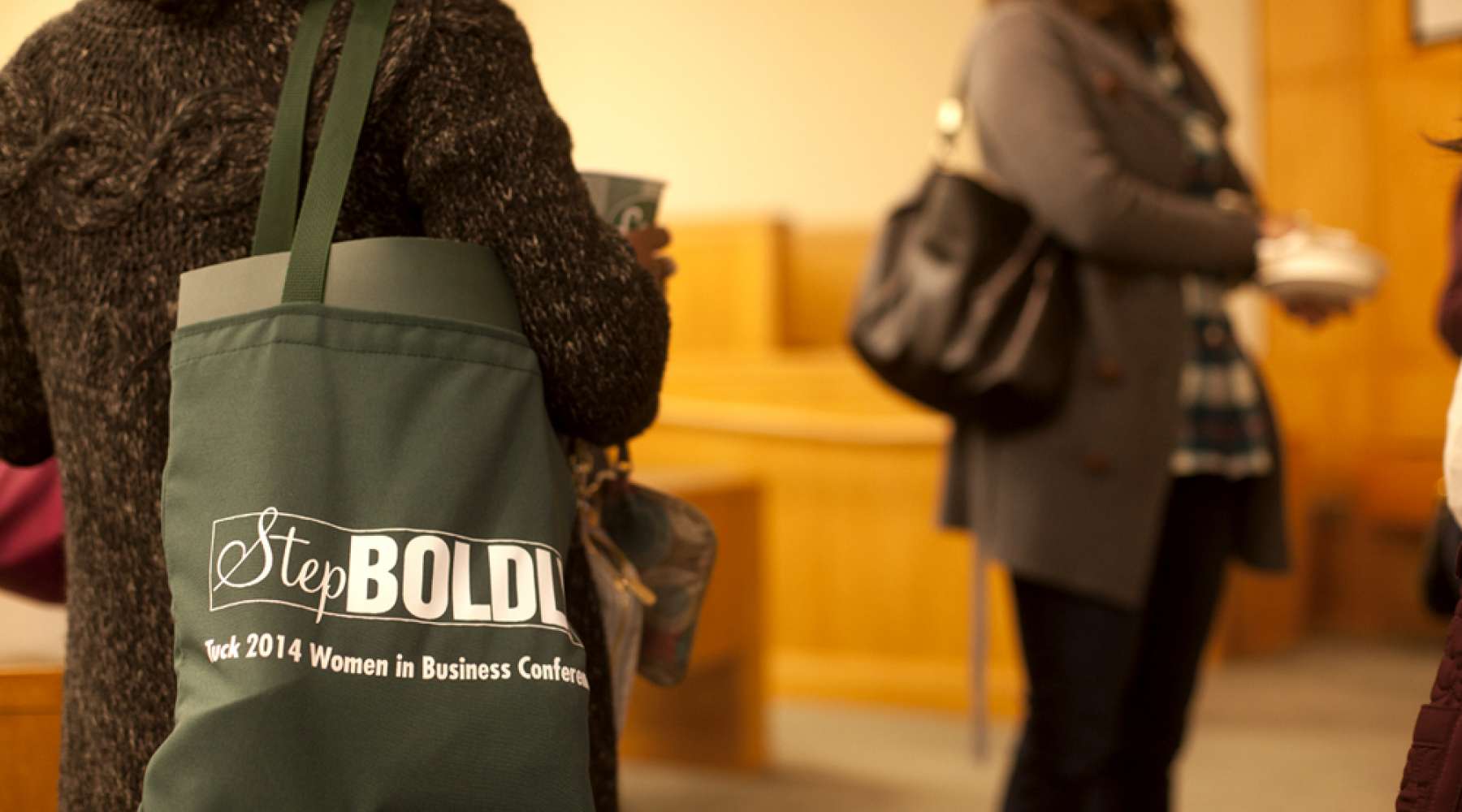
By Kiley Winsnes T'16
 Kiley is a first-year student at Tuck. Before arriving in Hanover, she was living in stunning San Francisco and working for an integration software company. Originally from Chicago, Kiley spent her formative years in Seattle before chasing the California sunshine for her undergraduate degree in economics and religious studies. After Tuck, she hopes to get a job that combines two of her passions: fitness and technology. Outside of the classroom, Kiley enjoys running, road biking, writing, and the beverages of her two home cities: coffee and wine. Kiley can be contacted at kiley.j.winsnes.tu16@tuck.dartmouth.edu. Follow her on Twitter at @kileywins.
Kiley is a first-year student at Tuck. Before arriving in Hanover, she was living in stunning San Francisco and working for an integration software company. Originally from Chicago, Kiley spent her formative years in Seattle before chasing the California sunshine for her undergraduate degree in economics and religious studies. After Tuck, she hopes to get a job that combines two of her passions: fitness and technology. Outside of the classroom, Kiley enjoys running, road biking, writing, and the beverages of her two home cities: coffee and wine. Kiley can be contacted at kiley.j.winsnes.tu16@tuck.dartmouth.edu. Follow her on Twitter at @kileywins.
Disclaimer: This post might be slightly contentious because it's about my least favorite F-word. No, not that one (those who know me well know I've fully embraced that one already). It's about ... feminism.
Tuck hosts a conference every year for Women in Business (WIB). Spanning a weekend in October, WIB serves as a good opportunity for female prospective students to visit and get a sense for life here in Hanover, as well as attend some female-centric educational sessions. More about this soon, but first I’d like to give some context for my thoughts on feminism in general.
I grew up with some pretty kick-butt female (and male) mentors. My parents, grandparents, teachers, coaches, etc. all instilled in me the same kind of pride and confidence—the kind that had nothing to do whatsoever with my gender. I was taught I was awesome. As a human. Not as a girl.
Later, at the all-girls' middle-high school I attended, this message was ingrained even more deeply. It's easy to ignore gender when there's only one around; and that's exactly what we did. We were smart, talented, driven people. It didn't matter we all happened to be female.
So, when I hear about events, campaigns, etc. like the WIB conference, my innate reaction is one of disdain. My thoughts tend to come back to: "Why the heck would we need a ‘Women in Business’ conference? It's not like they have a 'Men in Business' conference." The focus on gender, it seemed to me, only served to further separate the sexes—not equalize them. We—men and women—should be worried about being good employees, not about being good female employees.
Now, a little more back story.
When I began applying to MBA programs, I remember a to-be-unnamed individual (let's call him "that guy") responding to the news by saying "Oh, awesome! You're a woman, so that should help." You can imagine my reaction. I was going to get into school because of my accomplishments, not because of the chromosomes my egg/sperm combination happened to express.
The thing is, he was right.
Being a woman does help an applicant get into MBA programs, because so few women are applying to business schools. The numbers are mixed but they all indicate one thing: women aren't getting their MBAs at the same rate as men.
As more companies push to hire women, business schools are right behind them, filling the classroom to reflect what we'll experience in offices. Ergo: more women. And without the applications from females, the math gets pretty easy: per-applicant, women may have a better chance of getting into a specific program.
The important realization, for me, was that this doesn't mean being a woman makes it easier to get into grad school. It means I'm an even bigger BA. It means female MBA students have overcome greater odds to even apply, much less attend, a top program. So was "that guy" right? Yep, sure was. Am I still mad about it? Not at all.
So, now that I'm here, I'm starting to get comfortable with the emphasis on women in business. We are statistic anomalies. No matter how incredible and empowering my upbringing was, the fact that I've always felt equal to men doesn't mean that all women feel that way; and that's a problem. So, until every girl feels the way I did growing up (namely, that she can do absolutely ANYTHING she wants), we, as ambitious, educated women, have a responsibility to do what we can to equalize those numbers.
Now, back to WIB. The conference was a jam-packed weekend for prospective students, featuring panel presentations by alumni and current students, interactive sessions (like improv comedy, which was amazing), and, my personal favorite, a seminar on Gender Intelligence. The seminar focused on the science of gender differences. Because—are you sitting down? Good. As it turns out, men and women are different. Biologically. Physiologically. Evolutionarily. Starting a few weeks into fetal development, we split paths; our brains and bodies develop differently, because for hundreds of generations, we’ve needed them to. The presenter, Jill Beresford, who is an accomplished businesswoman, walked us through the research in the (still fairly new) field of gender intelligence, and the ways scientific differences between men and women can take form in the workplace. For example, did you know that men hear men’s and women’s voices in different regions of their brains? Or that women’s brains, even unstimulated, are never at rest—a stark contrast to men, who are much more capable of “shutting off” their minds.
Jill did a fantastic job of keeping the presentation focused purely on the facts. Gender differences can obviously be a contentious topic (the fact that men’s brains tend to be bigger in volume is always a … conversation starter), but she continually brought the conversation back to the science. It was a refreshing take on an age-old debate.
Overall, WIB was an awesome showing of some very successful, talented women. I still feel pretty weird about the word "feminism" (I actually just made a face typing it. I clearly still have some work to do.), but I'm trying to recondition myself. It doesn't mean I've changed my opinion that gender shouldn't factor into the equation when determining someone's worth, especially as an employee. It means I have to do what I can to make sure I'm not the outlier in having that opinion. We all do.
A few more articles in case this topic is of interest to you:
"Women in Business Schools: Why So Few?"
"7 Shocking Discoveries from Harvard Business School's Attempt to Improve Gender Inequality" (a personal favorite)
"Will Harvard Ever Have an MBA Class with 50 Percent Women?"
(Photo above of WIB conference by Laura DeCapua)